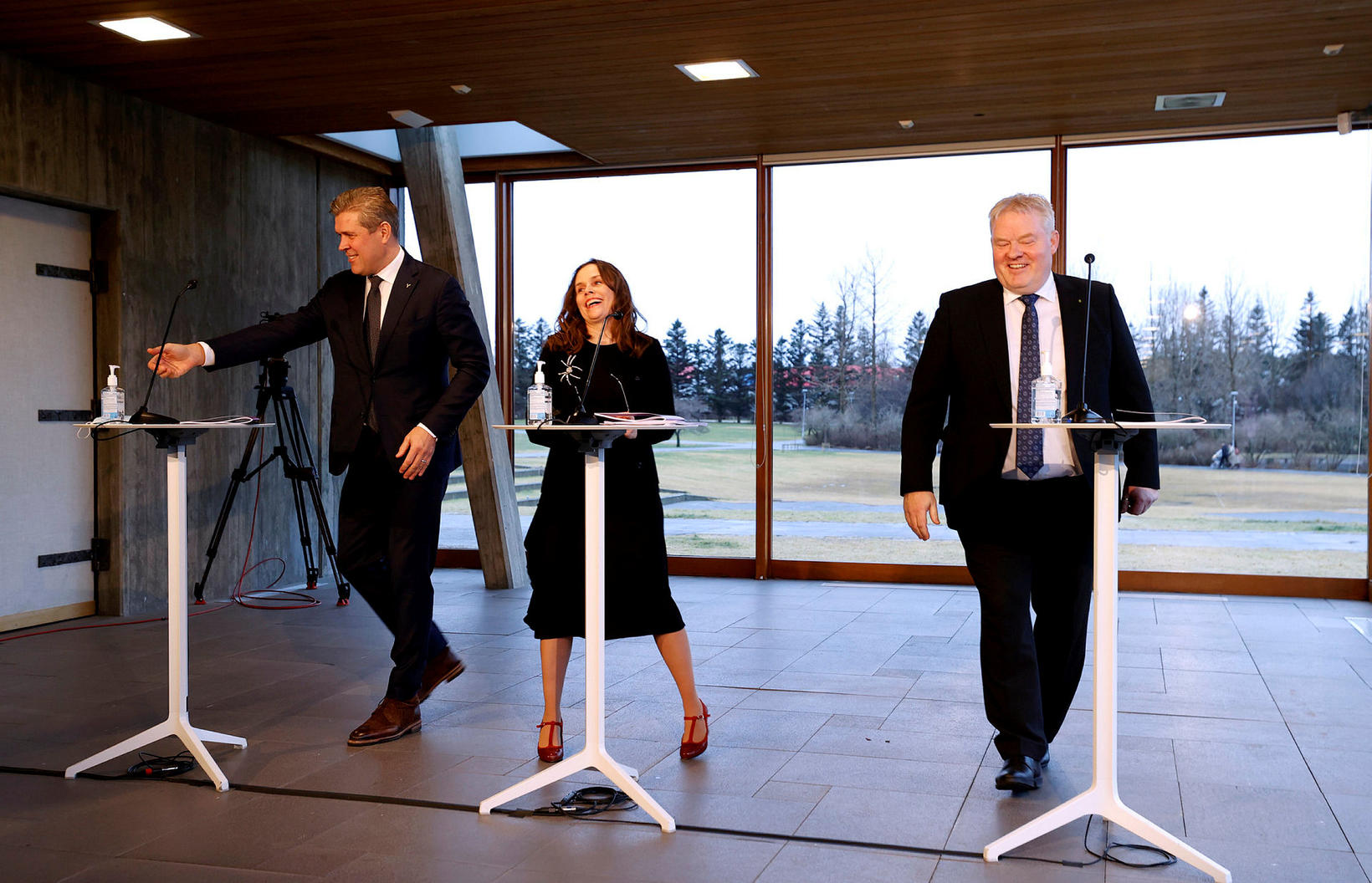Hopefully a sign that the inflation has peaked
Benediktsson, Jakobsdóttir and Jóhanns all hope that the inflation has peaked. mbl.is/Eggert Jóhannesson
Annual inflation is down below 10% and is now at 9.8% compared with 10.2% last month.
Bjarni Benediktsson, Minister of Finance and Economic Affairs, says it is best to hold back with a lot of statements, but says that for one thing the trend is positive and hopefully an indication that inflation has peaked.
"We have seen a lot of interest rate increases from the Bank. The government finances this year are supporting lower inflation, which we see in a very big change in the performance of the government. We are continuing to take measures that will help to keep prices down."
Benediktsson says it is a significant task, once people have lost control of inflation expectations into the future, to rebuild confidence that we can deal with this task and succeed. He says the government is very focused on doing just that.
The financial perspective will work with the actions of the Central Bank
Prime Minister Katrín Jakobsdóttir says that her expectations and hopes are of course for the inflation peak to be reached, but she says that it does not change the situation as it is today, however, referring to high inflation and interest rates at the levels we have seen since last week.
"In that situation, it is obviously important that the financial plan works with the Central Bank’s efforts to bring down inflation more quickly.
We need to maintain full caution with regard to this task, and I repeat that this of course lies with the Central Bank and the government, but this also lies, of course, with the labour market and with the companies on the market.
Key to our progress
She repeats her previous words that it matters when some companies are stepping up and cutting prices and encouraging others to do the same because is important in achieving success.
Speaking about statements made by some representatives of workers’ unions that all criteria for collective bargaining are broken, Jakobsdóttir says that the decision to enter into short-term contracts was made because of the uncertainty in the economy and she says she believes it was a wise step.
"However, it is absolutely crucial that we make progress in getting inflation down before the start of the next round of negotiations, which is only at the end of this year.
It is of course of vital for society that we can reach long-term agreements here that guarantee the well-being of all Icelanders and then it is important that these issues are under control,” she says.
Are you concerned about the statements to the effect that all negotiations on the next agreements should be terminated in view of the economic situation?
“The next few months will be crucial, that is simply the way it is,” says Katrín.
The most important task today
Minister of Infrastructure Sigurður Ingi Jóhannsson concurs with his colleagues.
“We believe that the most important thing now is that the financial plan supports the goals and monetary policy of the Central Bank and that it is the most important task today both economically and socially,” says Sigurður Ingi.










